Visual identification by human eyes is often impractical due to the similar appearances of animals. Al image processing is also challenging due to their identical looks. Therefore, the need arises for an implantable tracking system involving chips to facilitate identification and data retrieval, including health conditions, age, species type, origin, and other relevant information.
This system can prove invaluable for IoT-based animal data analysis and autonomous tracking in large national parks, forests, and zoos, aiding in monitoring the habitat of endangered species. It utilises a 125Hz implantable RFID chip, which can be easily implanted inside a human or animal body, and subsequently scans it using a dedicated device. The design aims to track and record data, storing it in a computer or cloud servers. Despite the chip being inside the body, automatic detection is essential if animals or snakes escape their enclosures, necessitating the design of a reader device capable of RFID detection from a distance. Refer to Fig. 1 for the chip's location inside the body seen using X-ray. You may commence the project with the collection of components (bill of materials) detailed in the table above.
Circuit and working
The circuit diagram of the device is shown in Fig. 2. The circuit comprises the 125Hz serial RFID reader chip RDM 6300 (MOD1), USB FTDI (MOD2) for interfacing with Raspberry PI Zero/4, and a few other components. The antenna comes free with the RFID reader with proper specifications.
When it comes to tracking, not all microchip implants are equal. In this case, we leverage the power of a 125kHz RFID implantable device for animal and human identification.
This story is from the December 2023 edition of Electronics For You.
Start your 7-day Magzter GOLD free trial to access thousands of curated premium stories, and 9,000+ magazines and newspapers.
Already a subscriber ? Sign In
This story is from the December 2023 edition of Electronics For You.
Start your 7-day Magzter GOLD free trial to access thousands of curated premium stories, and 9,000+ magazines and newspapers.
Already a subscriber? Sign In
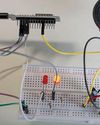
ESP32-Powered AUDIO-VISUAL SIREN
This sound alternator is designed to simulate the effects of a police siren, combining sound and light to create a dynamic audio-visual experience.
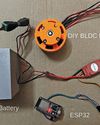
BLDC MOTOR With Web-Based Speed Control Using ESP32
Integrating wireless control into brushless direct current (BLDC) motor systems opens up exciting possibilities for applications such as remote-controlled cars, robots, and other innovative systems.
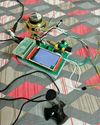
Pi Zero Portable BILINGUAL TRANSLATOR
This system is designed as a bilingual translator, leveraging the gTTS library to support multiple Indian languages, including English (en), Bengali (bn), Gujarati (gu), Hindi (hi), Kannada (kn), Malayalam (ml), Marathi (mr), Tamil (ta), Telugu (te), and Urdu (ur).
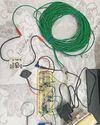
Op-Amp-Based VEHICLE THEFT DETECTOR
A simple, low-cost device can effectively alert homeowners or occupants if a parked vehicle is moved or tampered with.
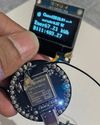
loT SMART METER With Dashboard
Energy meters in homes track electricity usage, enabling accurate billing by governments and providers.

Choose The Right Cloud Platform For Implementing loT PROTOCOLS
Working with loT protocols like MQTT, AMQP, and CoAP on cloud platforms is essential for developing scalable and efficient lol applications. The choice of the programming platform will depend on factors like project requirements, existing skills, and target devices. Leveraging the appropriate libraries and cloud services can enable seamless integration of lol devices with cloud-based applications.

Why TMR SENSORS Lead Next-Generation Design
TMR sensors are gaining traction in industries needing precision and power efficiency. What makes them the go-to choice for modern designs?
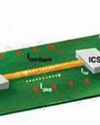
DESIGNING PCBs For EMI Management
Electromagnetic interference can derail your PCB’s performance. EMI management is not just a technical necessity but a hallmark of exceptional PCB design.

CUTTING COSTS, NOT CORNERS: Building Large Scale Applications With Open Source Software
Here are some strategies and best practices for leveraging open source to create enterprise-grade web and mobile applications without sacrificing quality or functionality.

"We Are One Of India's Very Few State Bodies To Manage The Entire Lifecycle Of The Electronics EcosystemFrom Approvals To Subsidies."
What is Gujarat State Electronics Mission GSEM), and how is it attracting major investments in electronics manufacturing, particularly semiconductor manufacturing, to Gujarat? To delve deeper, Electronics For You’s Nijhum Rudra spoke with Manish Gurwani, the head of GSEM. Here is what he revealed...